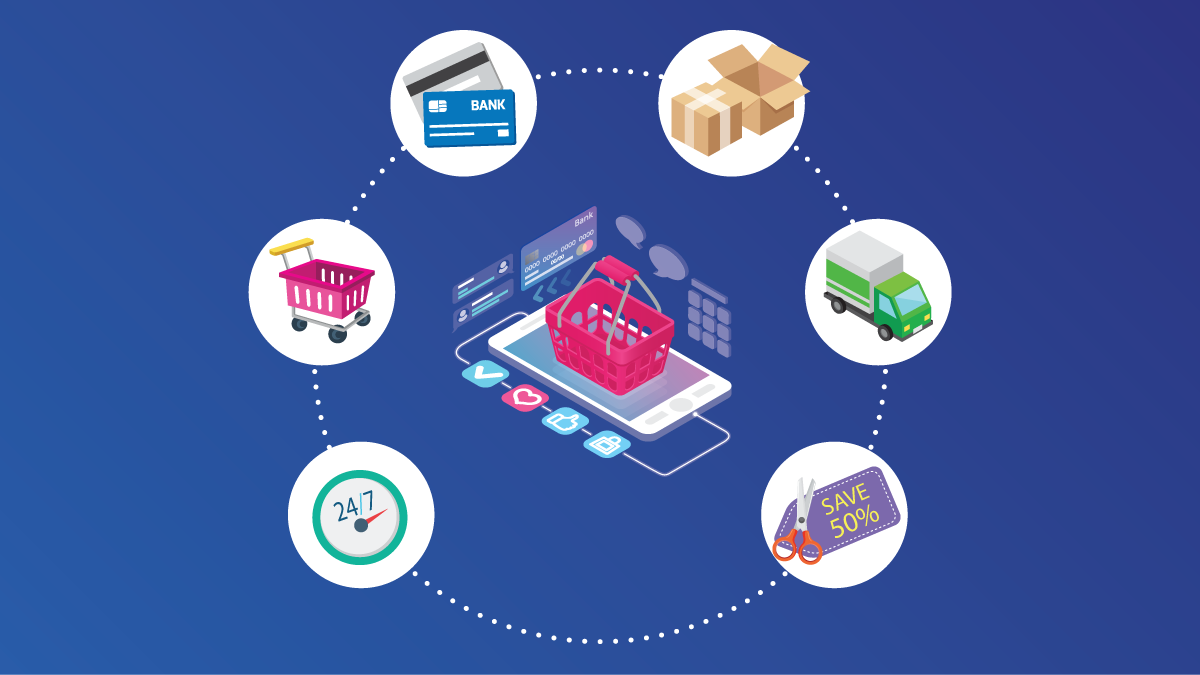E-Commerce is a rising sector in Bangladesh. I already wrote an article about it’s growth and the future of this industry. It’s growing with tremendous speed and many people are considering this one of the most fastest growing industry in Bangladesh. Lots of businesses are already established and providing so far best e-commerce experience to the people of Bangladesh. But I already told you in my other articles that there are lots of challenges to e-commerce. Logistics is one of the biggest challenge to Bangladeshi e-commerce.
This is also a key points to make e-commerce successful. And specially in our South Asia continent for example India, Indonesia it’s still a key challenge. We are not alone to face it.
Bangladesh & It’s E-Commerce Industry
Bangladesh is one of the fastest growing economies in the world, according to World Bank. People are more capable to spend money as well as earning capacity also increased. It’s a good sign that’s the key metrics to any country. Bangladeshi people is living under a future dream of Digital Bangladesh and the current government has a vision to implement it.
E-Commerce is not new in Bangladesh. Journey of e-commerce started in Bangladesh since last 10/12 years if I can memorize. But only very few people living in Dhaka city can participate in online shopping. But now the situation changed. People are now familiar to buy products or services from online. There are so many challenges in this e-commerce industry. But logistics one of the biggest challenge to Bangladeshi e-commerce businesses.
Number of un-banked people are decreasing. Thanks to bKash and other fin-Tech initiatives in Bangladesh. People now know what’s digital. Most of people now using mobile phone, they are using messaging service, social media and other online services. It’s not a lie. It’s the truth.
So according to the overall experience as a Bangladeshi, e-commerce is one of the growing industry in Bangladesh and it’s growing rapidly.
Logistics in E-Commerce Business
It’s the complete process of getting products from merchant and deliver the products or service to the customer when they need those products in time. That’s why it’s a key element to e-commerce business as well as in other industry. If your logistics has a weakness, your business will be affected hard by that weakness and you can’t deny it.
Also logistics is not a on/off switch. It’s a “process” that you need to engineer to make it perfect and effective. Effective logistics support can boost your overall business specially in e-commerce industry. So consider it a challenge to Bangladeshi e-commerce.
Online shopping process should be very simple. For example, a customer wants to purchase 1 kg beef from online store. Because they don’t have time in their hand to go to market. Ok. And they need it within 1 hour in their house so his wife can cook them and serve for their lunch.
But after they placing the order. What should happen? E-Commerce site authority should collect the beef from merchant and deliver that to the customer in timely manner as early as possible. If they fail, the customer’s family can’t have lunch with that beef. So next time they won’t order from online anymore. It will discourage them to participate in e-commerce economy.
Why it’s a challenge to Bangladeshi e-commerce?
There are lots challenges in this e-commerce industry in Bangladesh. But why I am discussing about logistics here? Because it’s one of the major challenges in Bangladesh e-commerce industry. Let’s see why.

Transportation
Transport was a major problem in Bangladesh not only now but from so many years and governments are working hard to solve this national problem. Unplanned roads, so many personal vehicles, no strict rules in driving and vehicle movement. To go from one place to another in most of the populated city takes hours and hours time.
For the businesses, it’s difficult to operate and meet the timeline for their shipping and delivery estimated time frame for the customer. Transportation is another key element of logistical challenges to Bangladeshi e-commerce.

Warehousing
Another major problem is warehousing. To rent or build a warehouse in any of the major city e-commerce business needs to invest lots of money as well as to find a suitable place is tough. If any e-commerce businesses can build so many warehouses based on their customers demographic location, they can solve this problem sooner.
But e-commerce business organizations don’t want to invest money because they are not doing so much profit to take the money from. So until they reach to their expected profit threshold they can’t risk their money by renting or building warehouses in the city.
Lack of third party logistics service
E-Commerce is growing now and the demands of logistics facility is increasing fast. In this case, there are lots of e-commerce businesses have started their operation but there aren’t much third party logistics service available in Bangladesh. Lots of companies are trying to open their logistics services soon.
In this case either the e-commerce businesses need to establish their own logistics concern or they need to rely on third party courier services or transport service. This way most of the e-commerce businesses can’t operate their business to meet the customer’s satisfaction.
Conclusion
It’s not a hidden truth about all the challenges to Bangladeshi e-commerce industry. It’s time to act first to support this industry and let the e-commerce businesses to focus on their end-user’s satisfaction. I personally believe that making a business logistics friendly environment can help e-commerce businesses to overcome this types of key challenge to Bangladeshi e-commerce industry. It’s growing and let’s help it become grown.



